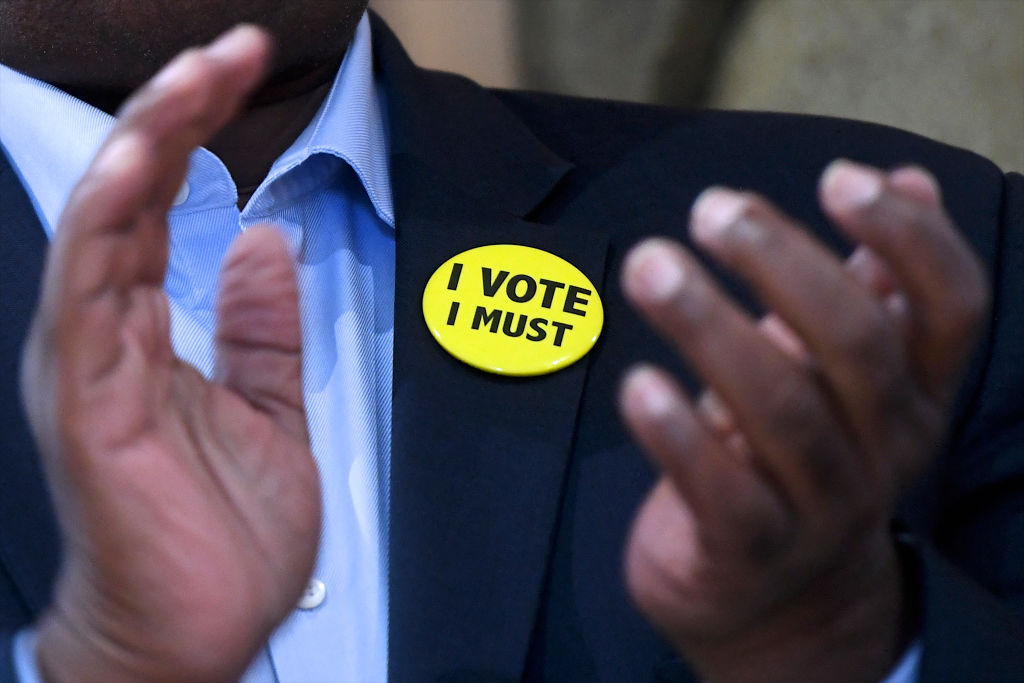It’s crazy to think that in 2019 we are still talking about voter suppression within the Black community. Take a look at the elections in 2018 to see what I’m talking about, and in particular, it’s the state of Georgia that is key.
Right across the state, there were numerous attempts to remove Black voters from the list of registrants. To be honest, some of this was blatant. Go back to 2017 when Brian Kemp removed close to 600,000 individuals from their right to vote and another 53,000 53,000 voters in 2018. In that instance, 70 percent of those voters were Black.
You also then need to question the way in which the voting machines in predominantly Black areas were either missing or not working resulting in long queues. Is it any wonder that some people gave up and never cast their vote? Is it not strange that areas where the majority of voters were white never had these kinds of issues?
Also, other polling stations across Georgia were closed to save money. While saving money seems like a reasonable excuse, they focused on polling stations in Black areas. This was just another attempt at suppressing the vote. When you put this together, it cannot be a coincidence that these all happened.
Of course, it didn’t help that Kemp was up against an African-American woman in the election. Add that Kemp was the individual responsible for the fair running of the election, and you grasp why suppressing the Black vote was so important to him.
Sadly, we shouldn’t be surprised. This is not the only time in history we saw restricted voting rights for African-Americans. In the 1870s, the Supreme Court decided that aspects of the constitution that set out the right to vote no matter the color of your skin didn’t actually mean that.
Move forward to the 1880s where the voting process was so complicated that any individual who was even semi-literate would have difficulties placing their vote. White voters were given tips on what to do while the Black voters were ignored.
I can also look at Mississippi in 1890. They made an insane attempt (which was completely legal) to make sure that Black voters couldn’t vote. In order to vote, you had to pass a literacy test – along with other key points – and you had to read and explain a part of the state constitution. White voters had simple passages – along with help – while the African-American community got complex passages that were incomprehensible.
Of course, the Black voters failed. In Mississippi, there were virtually no African-American voters out of a population of over 900,000.
This was something that then spread over the Southern states over the next few years and voter suppression tactics ramped up quite considerably. In Louisiana alone, the number of Black voters dropped from over 130,000 to over 5,000 overnight and policymakers were determined to roll out new ways to make sure they could decide on who votes and who was illegal.
By 1906, over 90% of potential Black voters were declared null and void in the south. While it is different today, that kind of figure does show where we have come from in a little over a century.
Throw in fraud, violence, threats and a whole host of other scare tactics and what you have is a long history of black voter suppression going on for generations. At times, it is tough to see how this can all change. Yes, there are laws in place to stop voter suppression from happening but as we saw in Georgia there are loopholes that can be and will be exploited
Perhaps the good news is that the world has noticed what is going on and all of the discussions surrounding rigged elections has put a spotlight on issues that the Black community has known about for some time. I hope that 2019 sees a move in the right direction and we have fair elections no matter the color of our skin.
Blavitize your inbox! Join our daily newsletter for more fresh stories, perspectives and breaking news.
